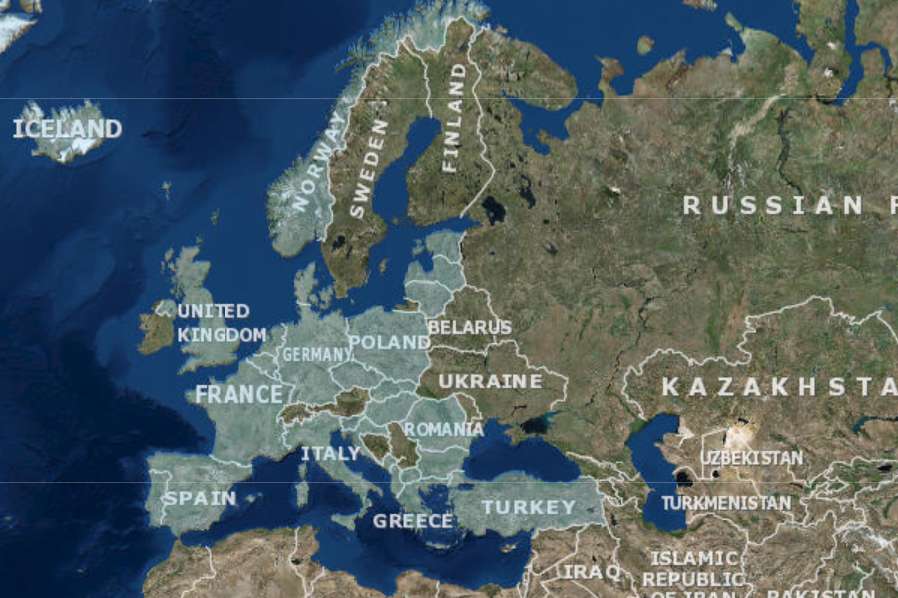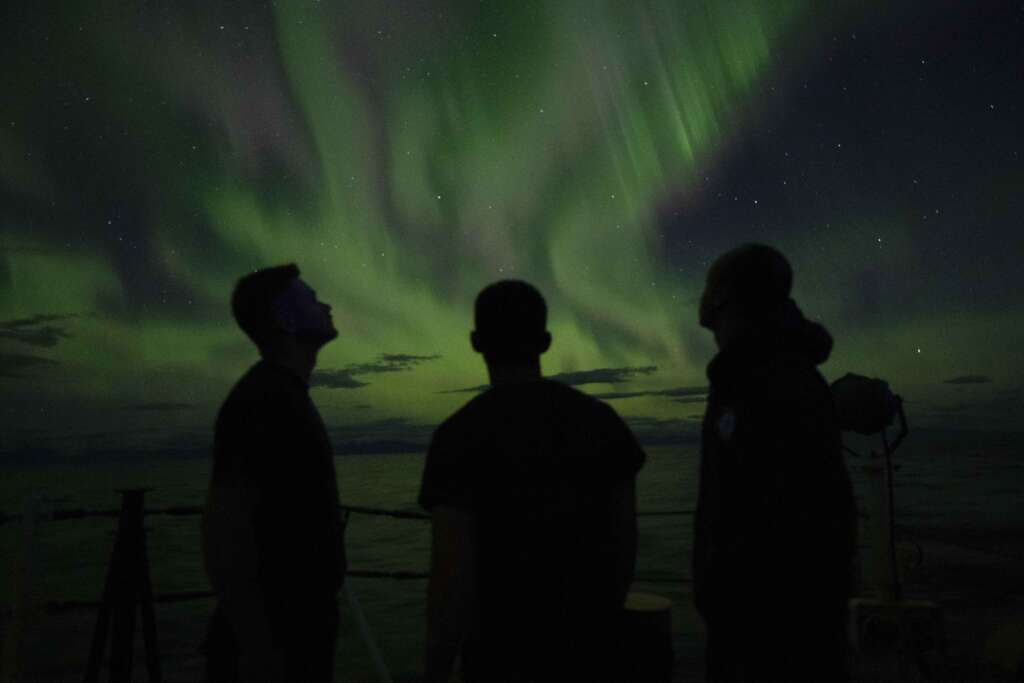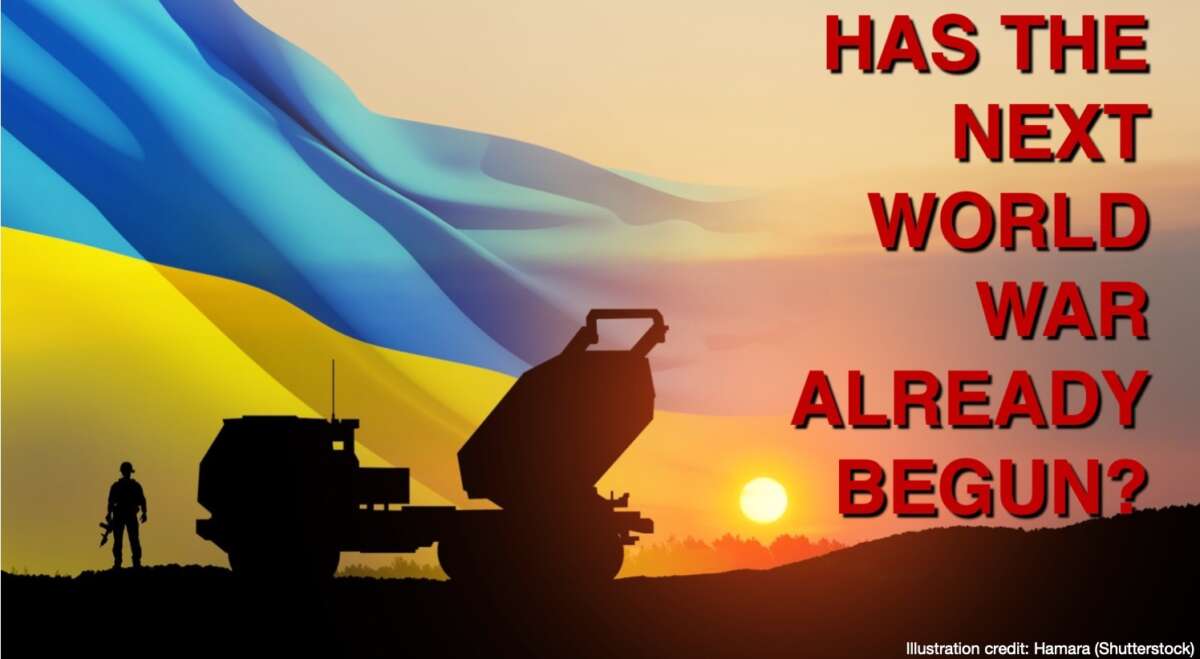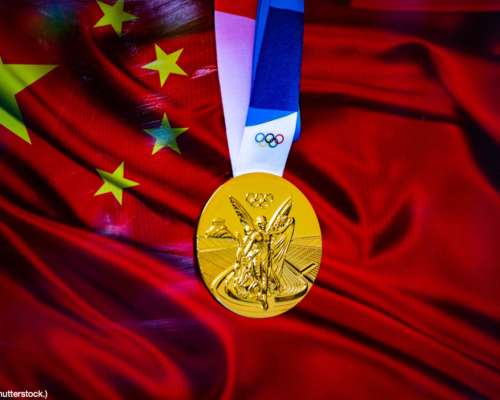Many of us are following the news from Ukraine. Routinely, it is pushed aside by reports of devastating hurricanes, wildfires, drought, rampant crime, inflation, and so on. Most Americans are likely aware that Russia invaded Ukraine last February. Americans also know that the U.S. and our allies are sending massive amounts of aid to Ukraine, both in humanitarian and in military assistance. The fact that Russia has repeatedly reminded the West that Russia has nuclear weapons in its arsenal which it is willing to use also has not gone unnoticed. During the first six months of the invasion, Russia seized additional Ukraine sovereign territory (beyond their initial anschluss of the Crimea in 2014.) Russian President Vladimir Putin cites his special military operation as justified based on creeping encroachment by NATO, his perceived decadence of liberal western democracy taking root in Ukraine1, persecution by the Kjiv government of citizens of Russian descent in eastern Ukraine as well as for other reasons. But Putin’s invasion of Ukraine has in reality occurred because fundamentally, Putin is unhappy with the contemporary maps of central and Eastern Europe and he seeks to restore glory to Russia by redrawing national boundaries to Russia’s advantage, even if it means the dismemberment of Ukraine, Moldova (where there are also Russian soldiers), and so on. Visions of empire. At the moment, however, the Ukranian forces have gained the initiative on many fronts and are reclaiming their lands. For all the embarrassment the Russians are dealing with as they understand that their army cannot fight or is poorly led, and for all of the handwringing by Sergei Shoigu, the Russian Defense Minister about events getting out of hand, this whole war could end tomorrow if President Vladimir Putin would just say “enough is enough” and pull out his troops which unlawfully occupy a sovereign country and who torture, rape and murder its citizens. But it couldn’t be quite that simple. It’s worth asking though: Has the next World War already begun?
In addition to the tens of billions fo dollars of military aid the West (i.e., the U.S., Canada, Japan, Australia and New Zealand and the European Union) has provided Ukraine, the West has also largely responded with economic sanctions, and has foregone Russian oil and gas to punish Russia, and now with winter steadily approaching, Europe is facing punishing prospects itself.
“My hypothesis is that we may be on the razor’s edge of a Third World War–if we haven’t actually crossed the line . . .”
Author
Does this give us an accurate context of where the world was a year ago and where it might be six months from now? My hypothesis is that we may be on the razor’s edge of a Third World War–if we haven’t actually crossed the line into a new war–and I believe this is presently a concern among intelligence and policy specialists who function way above my pay grade. In some unmistakable ways, traditional warning signs of war are everywhere.
Consider:

- Sweden and Finland have jettisoned their historical neutrality soon after the Russian invasion began and they petitioned NATO for immediate membership. They likely wondered where President Putin might strike next, and felt it was in their national interest to be part of a greater military alliance which shares their values and will fight to protect Finnish and Swedish borders.
- Two vital, Russian submerged Nord Stream pipelines off the coast of Denmark and Sweden which in the past transferred fuel from Russia to Europe have been attacked, one damaged much more severely than the other. Russia blames the U.S. (and, more recently, the U.K.) for the attack, but the consensus in Europe is that it is Russia which has committed the destructive sabotage, something common in wartime but less so in times absent of any conflict.
- Due to the boycott on Russian fuel which was designed to punish Russia for invading Ukraine, the cost of fuel on the international market has gone has gone sky high, especially after OPEC decided to restrict production this winter, no doubt at the urging of Russia. The means scarcity and increased cost for petrol. Furthermore, the drought in Europe has kept nuclear plants in some countries from operating at peak proficiency because rivers such as the Meuse in France are running dry, and in Germany hunger stones in the Rhine and the Elbe are warning the population of what might follow. Hydropower in Germany and in other countries such as Norway is down for the same reason (i.e., the drought.) Nuclear plants need access to water to assist in cooling their reactors, else they must be taken offline.
- The energy crisis noted above promises a cold winter for the citizens of Western Europe, even if the weather is relatively mild and in spite of rationing fuel. Currently, Russian is trying to collapse the power grid in Ukraine with regular missile bombardment of their electrical generating plants.
- Norway has repeatedly arrested or detained Russian citizens with cameras and even drones in the last week or so who have been caught near military bases or other off-limits areas. Are these innocent tourists or spies collecting intelligence? At least one suspected Russian was posing as a citizen from South America. In Germany, drones with wingspans of 8 meters in one case have been sighted near or over the German Defense Ministry while other drones are been observed elsewhere.
- Hundreds of Iranian made Shahed killer drones have been sold for no more than $20,000 each to Russia to replace a rapidly depleting inventory of Russian conventional weaponry. Launching these cheap drones in “swarms” has allowed some to break through Ukrainian defenses and destroy power plants and apartment buildings alike. This involvement by Iran (including the presence of Iranian “advisors” in the Crimea and most recently reported in Belarus) has caught the attention of Iran’s arch enemy Israel, which is already being pressured to provide assistance to Ukraine as well. The U.S. fears that in exchage for Iranian support, Russia may provide much needed help to Iran with its nuclear program.
- A second invasion front may be in the making at the moment from Belarus, a staunch Russian ally on the northern frontier of Ukraine. Thousands of Russian soldiers are taking their place alongside Belorussian forces poised at the Ukranian border as they await further orders from Moscow.
- Numerous cyberattacks from Russia have been launched against Ukraine and the West, including denial of service attacks directed at American airports and Lithuanian infrastructure. Poll booths in this fall’s off-year election in the U.S. may present a tempting target for Moscow as well.
- The U.S. and the U.K. are being pressured to provide more robust forms of artillery as well as surface to air missile systems to Ukraine. NATO countries such as Poland have also been promoting the notion of sending fighter aircraft to Ukraine as well. Current restrictions are in place in terms of the range of missiles and artillery shells exported to Ukraine, but these might eventually be lifted. Poland, also has been fortifying their border with the Russian enclave of Kaliningrad using concertina (razor) wire, likely to prevent saboteurs.
- China has recently closed their party conference during which President Xi Jinping proclaimed his vision for Taiwan and Chinese unification: “We insist on striving for the prospect of peaceful reunification with the greatest sincerity and best efforts, but we will never promise to give up the use of force and reserve the option to take all necessary measures.” If the U.S. becomes preoocupied or overly invested in a European war, China might see that as a favorable to time to pressure or attack Taiwan. As it is, Xi’s new five year term was greeted with a flight of capital from Chinese markets.
- Counties such as Turkey have suddenly become powerful actors on the world stage, in terms having the final say as to whether countries such as Sweden and FInland can join NATO, controlling transit through the Dardanelles, and being able to influence Putin the least little bit.
- Ultra conservatives in the U.S. continue their romance with and defense of Putin and other strongmen such as Viktor Orbán, the prime minister of Hungary and guest speaker at the Conservative Political Action Committee (CPAC) meeting in Dallas, TX a month ago. I’m not sure what we can learn from a leader like Orbán, but the attendees at CPAC cheered him on anyway. Republicans have historically been more often under the sway of isolationists than Democrats and these two characteristics may be harbingers of difficult days ahead for Ukraine if the Republicans take control of Congress in January. And for NATO, not to mention difficult days for America as well. No blank checks if the GOP captures the House.
- Russia has been warning over the last two weeks that Ukraine is plotting to detonate a “dirty bomb,” which is a cocktail of conventional explosives mixed with radiation from industrial or even medical sources. Since this war began, Russia has been known to accuse Ukraine for the exact same behavior that Russia, itself, is contemplating. Russia claimed that Ukraine has designs on Russia before Russia attacked Ukraine. Russia claims that they do not attack civilian infrastructure, but (they say) it is the Ukrainians, instead who are guilty of war crimes. Using Ukranian nuclear plants as military bases, Russian shelled Ukranian positions with impunity. It’s pretty clear then that it is the Russians, themselves, who are considering the use of weapons of mass destruction.
- The U.S. says that it has intelligence that the senior military staff in Russia met absent President Putin to discuss if and under what circumstances Russia might use tactical nuclear weapons in the war against Ukraine.
- Following the annual Russian nuclear readiness exercises in mid-October, the U.S. announced it would sent the next generations of the B-61 nuclear weapons program to cetain European countries sooner rather than later. The U.S. said it had nothing to do with the war in Ukraine, but . . .
- Last weekend Ukraine attacked the Russian Black Sea fleet with air and sea drones. Rumor is that the Russian flagship Admiral Makarov was damaged in the attack.
- I read in the Barents Observer today about a annual Russo-Norwegian ceremony commemorating the liberation of the Norwegian town of Kirkenes from the Germans by the Soviet Red Army in WW II, which was just held. Kirkenes has a current day population of about 3,500, 500 of which are newly arrived Russians who presumably are trying to escape the draft. About 40-60 residents of the towns people came out for the ceremony. But when Russian Consul General Nikolai Konygin rose to speak, half of the people present turned their backs on him. Even more telling is the fact (see in the photos of the event) that those who listened politely were in a single group while those who protested formed another group, with some distance and empty space between the group. The group of citizens with their backs turned to the speaker could readily be identified by the several Ukranian flags they carried to the event. This single photo shows how deep the rift is between Russia and people of other European countries.
This war will be like no other, because many assumptions are being overturned. These assumptions deal with air superiority and asymmetrical warfare, alternative and available sources of energy, drone and robotic warfare, and so on. With Russian battle field incompetence and logistical failures, soon all Russia will have left are weapons of mass destruction with which to continue their campaign. What then?
Prospects for a dark, cold winter
Below is a photo of a house in Finland. Or, it could be a dothan in Scotland, a cottage in France, a Belgium huisje, a Polish domek, a cabaña in Spain or a котедж in Ukraine.
It’s sunset, wintertime, and cold. Bitterly cold. No electricity, no heat, no phone service, no running water to drink or for toilets or any access to the web. This is what Europe is facing this winter. Fuel rationing, blackouts during the day, and temperatures well below 0o Celsius. What of petrol for vehicles? How can gas station pump fuel without electricity? And can one afford petrol even if the station operates several hours a day? How will you get to work, and then you finally arrive only to find your workplace shuttered and dark?

Failed assumptions
I can’t see how Europe can ever do business with Vladimir Putin again, and I know I’m not the only one who believes this. True, Putin was willing to honor energy contracts with the West as his forces plundered Ukraine, but the West would not let him have his cake and eat it too.
Another failed assumption comes from Putin, himself. He believed that he could force regime change in Ukraine after only two weeks or so of fighting, but the Ukranians proved him wrong. Then, too, he believed that perhaps he could destroy the will and unity of NATO. That, too led to no avail. Instead, NATO is about to increase in membership.
The rise of fascism in the West
It’s not easy to suggest that there is a insidious form of fascism emerging in the U.S.A. It is much easier and believable for the Right to warn of a creeping form of socialism, courtesy of the Left. But, in fact, both ideologies are present in America (and thriving.)
According to CBS News:
“Fascism is generally defined as a political movement that embraces far-right nationalism and the forceful suppression of any opposition, all overseen by an authoritarian government. Fascists strongly oppose Marxism, liberalism and democracy, and believe the state takes precedence over individual interests. They favor centralized rule, often a single party or leader, and embrace the idea of a national rebirth, a new greatness for their country. Economic self-sufficiency is prized, often through state-controlled companies. Youth, masculinity and strength are highly fetishized.”
https://www.cbsnews.com/news/what-is-fascism/
We see this characterization true of the political Right today. Democrats are demonized, the free, independent press is called the “enemy of the people” and the Executive Branch has consisted in the recent past of bureaucrats who are personally loyal to POTUS at the expense of the U.S. Constitution. Attempts have been made to allow a state to overturn democratic processes if a state legislature is unhappy with the peoples’ choice (at least in Arizona.) And the right seeks new era of America dominance (“Make America Great Again.”) This might be through Christian Nationalism, or white supremacy or though some other intolerant and unscriptural ideology. Meanwhile, the far Left has it’s own agenda and while we may never see a truly “progressive” president, ideologues in the Democratic Party can deny their party a governing mandate.
New frontiers
Air superiority
Neither side in Ukraine has air superiority. The Ukrainian Air Force could not compete with Russian air forces on a good day, but then, Russia has not had many good days since the war began. A very recent attack on a Russian airfield took place hundreds of kilometers from the Ukraine border. Drones (UAV’s) and missiles have done most of the damage to date on both sides. The question is: to what extent will drones “replace” conventional fighter jets? Jets can shoot down drones, though drones do not give off much of a heat signature and may slip by some defenses. I personally do not have the experience or expertise to discuss this area, but I know the air war in Ukraine is being followed closely by both sides in the conflict.
Cyber warfare
APT 41 (ak, Double Dragon, PLA Unit 6139) are well known Chinese hacking organizations. Russia has Cozy Bear and Fancy Bear among other groups. Hackers have operated more or less with impunity thus far.

Many cases of cyberattacks against the U.S. have been in the form of denial of service attacks to shutdown consumer access to services, whether Amazon or airlines. Another common form of attack is ransomware where a hospital or university is attacked with the intent of destroying or alterating either patient records or student transcripts. Some potentially deadly attacks have focused on the water supply system. In the past, Western governments have had more, or less, cooperation with Russia in mitigating the damage from hackers attacking hospitals, municipalities and other infrastructure targets, but those days are probably gone. Stuxnet was developed to destroy or degrade Iran’s nuclear program some years ago. In war, all bets are off and who knows what might be “out there?”
Arctic warfare
It’s possible that the Arctic will play a pivotal though yet unknown role in the war. Russia has been building bases (including miltary fortifications) to this end. Russian nuclear missile submarines (“boomers”) prowl silently under the receding ice cap. Russian military planes are found in the north in numbers greater than ever. More recently, Russian submarines have traveled from Severodvinsk on the White Sea north of Moscow 5,500 nm to a base (Petropavlovsk-Kamchatskiy) northeast of Japan. Gone are the days when the Russian submarine fleet had to travel through the Greenland-Iceland-UK (GUIK) gap. Russian (and much more lately the U.S. and NATO) have been staging ground maneuvers in the arctic and this theater will likely see more action in the next war as well.

Space warfare
Russia has repeatedly and recently signaled that Maxar satellites and the SpaceX Starlink constellation system may be considered “fair game” in this war, given the advantage that these companies provide to Russia’s enemy (Ukraine.) In a wider conflict, other official government space assets might also be attacked. Possibly it was this thinking that caused the Department of Defense to propose the Space Force in the National Defense Authorization Act of 2020.
Has World War III begin?
The first two world wars came about with very specific events, such as the assassination of Archduke Ferdinand or the German invasion of Poland in September 1939. And, while Britain and France fairly quickly declared war on Germany, few hostilities occurred between the belligerents for the next eight months, coining the term “Phoney War” or “Sitzkrieg.”
With the reelection of Benjamin Netanyahu, Israel may be much more willing to militarily confront Iran than before. Most of the Gulf nations would secretly applaud him for this, and Russia is too distracted in Ukraine to intervene. It is possible that we would hear from North Korea, where Kim Jong-un has been shooting off missiles (including an ICBM capable of reaching the U.S.) like party poppers in the past few days. Other nations (e.g. Armenia and Azerbaijan) might use this opportunity to settle scores as well. Clearly, we would then have many nations across several different continents at war. So we may very well have already set in motion the mechanism for the Third World War. And the answer to the question “Has the next World War already begun” may at this point be obvious.
Footnotes
1If not for Russian President Vladimir Putin, then certainly for his spiritual advisor Patriach Kirill, the last straw or casus belli may have been the Kyiv Gay Pride parade of September 19, 2021. More recently, Putin weighed in Mr. Putin saying that the West can have “dozens of genders and gay pride parades,” but that it should not try to spread these “trends” elsewhere. See also anti-gay laws passed in Russia.



